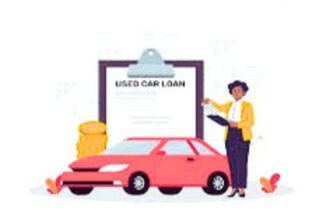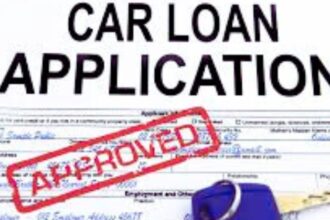Introduction: What You Need to Know
When applying for a car loan, the process can sometimes feel overwhelming, especially if you’re not sure what documents are required. The right paperwork is essential to secure financing and streamline the approval process. Failing to provide the necessary documentation can lead to delays or even rejection.
In this article, we’ll guide you through the essential documents you need to gather for a car loan application. Understanding what is required from the start will save you time and help you navigate the process with ease. Keep reading to ensure you’re well-prepared for your next car loan application and get one step closer to driving away in your dream car.
Why Are Documents Important?
Car loans are a significant financial commitment, and lenders need to verify your ability to repay the loan. This verification process involves reviewing various documents to assess your financial health, stability, and reliability. Without the proper paperwork, lenders may not be able to complete their evaluation, which could result in a delayed or denied application.

The documents required for a car loan serve as proof of your identity, income, employment, residence, and creditworthiness. Each piece of documentation helps establish the trust needed to approve your loan.
Key Documents for Car Loan Approval
When you’re applying for a car loan, it’s crucial to gather all the necessary documents before submitting your application. Below is a detailed list of the primary documents required:
1. Proof of Identity
Your lender needs to verify your identity to ensure that the loan application is legitimate. Acceptable forms of identification include:
-
Government-issued photo ID (e.g., passport, driver’s license, or national ID card).
-
Social Security number (SSN) or Individual Taxpayer Identification Number (ITIN).
This documentation helps the lender confirm your legal identity and prevents identity theft or fraud.
2. Proof of Address
Lenders will also need to verify your residential address. A recent utility bill, lease agreement, or official government document (e.g., tax return or voter registration card) typically suffices as proof of address. This ensures that you reside at the address you’ve provided in your application.
3. Proof of Income
To assess your ability to repay the loan, the lender will ask for proof of income. This could include:
-
Pay stubs from the past few months.
-
Bank statements showing regular deposits.
-
Tax returns (for self-employed individuals or those with irregular income).
The goal is to confirm your financial capacity and stability. Lenders may also ask for your employer’s contact details to verify your employment.
4. Employment Details
Lenders often want to confirm your employment status. While proof of income covers part of this, additional documentation such as a letter of employment, a recent pay stub, or a self-employment contract may also be necessary. If you’re self-employed, providing tax returns and business documentation will strengthen your application.
5. Credit History and Score
While technically not a physical document, your credit score and history are crucial in determining your loan eligibility. Lenders will pull your credit report from one of the major credit bureaus to assess your creditworthiness. The better your credit score, the more likely you are to receive favorable loan terms.

6. Down Payment Details
Most lenders will expect you to provide a down payment for the car you’re purchasing. You may need to provide proof of the funds for your down payment, whether it’s a bank statement, savings account details, or a gift letter if someone is assisting with the payment.
7. Vehicle Information
When buying a car, the lender will need details about the vehicle you’re planning to purchase. This includes:
-
The car’s make, model, year, and Vehicle Identification Number (VIN).
-
A copy of the car’s purchase agreement or invoice from the dealership.
-
Proof of car insurance (if required by the lender).
This information ensures that the car you’re purchasing is eligible for financing and provides the lender with collateral should you default on the loan.
8. Co-Applicant or Guarantor Documents (If Applicable)
If you’re applying with a co-applicant or a guarantor, they will need to provide the same documentation as you. This includes proof of identity, income, and credit history. The lender may require these documents to assess the co-applicant’s or guarantor’s financial stability in case you default on the loan.
9. Residence Proof (For Non-Citizens)
For non-citizens or permanent residents, the lender may require additional proof of legal residence. This can include a permanent residency card, work visa, or other immigration documentation.
10. Debt and Liability Statements
Lenders might ask for documentation regarding any existing debts or liabilities. This could include:
-
Personal loan statements
-
Credit card balances
-
Mortgage documents
These will give the lender a clearer picture of your financial obligations and help them determine how much you can afford to borrow.
How to Organize and Submit Your Documents
Once you’ve gathered all the required documents, it’s important to organize them clearly and submit them in the proper format. Many lenders now offer online application portals where you can upload scanned versions of your documents. Make sure each document is legible and complete.
Here are some tips for smooth document submission:
-
Scan or take clear pictures of documents to ensure readability.
-
Ensure that you’ve included the full document, especially for items like pay stubs or tax returns.
-
Double-check that all required documents are included before submission.
Common Mistakes to Avoid
To help ensure your application is processed quickly and smoothly, avoid these common mistakes:
-
Missing Documents: Failing to submit all required documents can lead to delays or rejection.
-
Incorrect Information: Any discrepancies in your documents, such as mismatched names or incorrect addresses, may raise red flags.
-
Inadequate Income Proof: Submitting outdated or incomplete income statements can delay the process or affect loan approval.
What Happens After You Submit Your Documents?
Once you’ve submitted your documents, the lender will review your application. This involves checking your credit score, verifying your income, and ensuring that the vehicle meets their financing criteria. If everything is in order, you’ll typically receive an approval decision within a few days.
In some cases, the lender might request additional information or clarification, which could extend the approval process. Once approved, you’ll receive loan terms, and you can proceed with purchasing the vehicle.
Conclusion: Prepare for Success
Securing a car loan is a significant milestone, and being prepared with all the required documents can make the process smoother and faster. By ensuring that you have proof of identity, income, address, and other essential documentation, you improve your chances of loan approval.
Getting your paperwork in order now will save you time and frustration later. So, take the time to gather all necessary documents, double-check everything, and get ready to hit the road in your new car!










